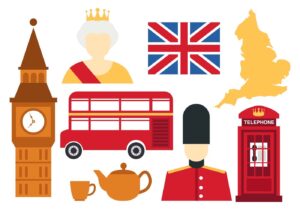High-Tech Hotels: Coolest Examples of Technology in Hospitality
4 min readTechnology regularly revolutionizes travel.
While the travel bug predates electricity, the modern industry relies on budding forms of automation. From AI programs that can help tourists plan their next trip to fully-fledged robot concierges, the horizons of techy travel are constantly expanding.
In fact, hotels, airlines, and other hospitality-centric industries are looking closely at how technology can improve the customer experience, streamline operations, and give them an edge over competitors.
The number of initiatives is dizzying—but which forms of technology are actually making an impact?
When it comes to travel and tech, I’m mostly focused on eco-initiatives. Sustainable tech is at the forefront for many luxury hotels and travel brands around the world—and rightfully so, as many tourists are zeroing in on what sustainability looks like in practice.
For now, I’m taking a step back from eco-centric tech in hospitality to focus on the more imaginative and groundbreaking forms of tech.
Think you know about the cutting-edge world of AI and tech-forward hotel stays? Here are a few of the coolest projects I’ve uncovered recently.
Robot Massages at Lotte New York Palace
I’ve seen robots deliver drinks and meals at restaurants. I’ve even seen robots store and manage hefty luggage.
But I was pretty mindblown to learn that robots are also administering massages at Lotte New York Palace. The hotel partnered with Aescape to offer a fully automated massage at its ila Only Spa on-site location.
I’m going to be blunt—the setup looks a little intimidating. The robotic arms look more geared toward a medical procedure. That being said, reviews on the Aescape robot massage are universally positive. Aescape spent around seven years prototyping its robot masseuse with around $80 million in funding to nail the experience.
In fact, Aescape’s early success at Lotte New York Palace is expected to generate interest around the country. Already, Aescape will be selling its massage-bots to select Equinox locations.
Infrared Sensors at Hotel 1000
Not all tech-centric projects in hospitality are focused on robots. Already, robots have proven helpful as concierge support, snack delivery, suitcase storage, and more. But many tech projects are focused on simplifying operations.
Infrared thermal technology is changing how hotels set room temperatures and even how they structure cleaning programs.
For example, Hotel 1000 in downtown Seattle uses this type of technology to alert cleaning staff to whether or not guests are in their rooms, generating fewer interruptions for visitors. Infrared technology also automatically changes the room’s temperature based on the number of occupants.
What I like best about this type of technology is that it’s invisible. Guests aren’t aware that their stay is being improved using something as basic as infrared.
Proto M hologram concierge at the Beverly Wilshire
The future of hospitality tech isn’t only based on robots. Some brands are jumping ahead to bring holograms to their staff.
At the Beverly Wilshire, the goal is to offer guests in-room holograms that act as personal concierges. But what does this actually look like?
At their most basic, a hologram might only put out pre-recorded messages. But the Proto M hologram is designed to do way more. The hologram isn’t a generated image—it’s a live video feed to the actual concierge downstairs. No weird automated messages or unhelpful advice.
Think of it like a next-gen version of a telephone.
Jet-Lag Support from InterContinental Hotels & Resorts
Jet lag is one of the most enduring problems in the travel world—one that isn’t easily fixed by technology or even sage advice. We all tend to struggle with jet lag for specific reasons.
That might be based on falling or staying asleep, along with other health-related issues like appetite, drowsiness, and even gut-related topics like constipation.
The great minds at InterContinental Hotels & Resorts are looking to revolutionize their approach to guest wellness by offering tailored jet lag services. The company partnered with Timeshifter, a science-based app that offers travelers sleep advice based on a number of factors.
The goal is to align guests with their internal cycles, which might require less artificial light exposure at certain times of day.
Bed Bug Fighting Technology from MachineQ
Bed bugs are a huge problem in hospitality—one that many hotels are helpless to fight. For example, bed bugs swept across Paris prior to the Olympic travel season.
The origin isn’t unclean guests or rooms—it’s the simple fact that bed bugs can hide in guests’ luggage and belongings for long periods of time only to emerge, multiply, and lay siege to cities.
So it’s a serious problem, even for five-star brands. The UK’s Spotta technology is designed to identify and fight the spread of bed bugs. This ace project recently announced a partnership with MachineQ, a Philly-based connectivity provider.
Thanks to the partnership, it looks like dozens of major hotel brands across the US will soon adopt Spotta tech.
Smart Showerheads from Oasense
Oopsies, looks like I snuck in an eco-friendly form of tech. Smart showerheads are an emerging form of technology that’s designed to minimize water waste—especially for hotels that shell out millions to heat gallons for every room.
And just like with infrared sensors, this type of tech from Oasense and other brands is invisible.
Smart showerheads automatically reduce and boost the water flow to a room based on live usage. For example, the showerhead will automatically minimize the flow when a guest is waiting for the water to heat up.
These small changes can yield mighty results for hotels, saving them big money and giving guests a more eco-friendly experience.



